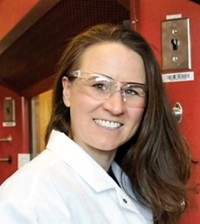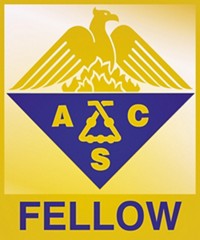Advertisement
Grab your lab coat. Let's get started
Welcome!
Welcome!
Create an account below to get 6 C&EN articles per month, receive newsletters and more - all free.
It seems this is your first time logging in online. Please enter the following information to continue.
As an ACS member you automatically get access to this site. All we need is few more details to create your reading experience.
Not you? Sign in with a different account.
Not you? Sign in with a different account.
ERROR 1
ERROR 1
ERROR 2
ERROR 2
ERROR 2
ERROR 2
ERROR 2
Password and Confirm password must match.
If you have an ACS member number, please enter it here so we can link this account to your membership. (optional)
ERROR 2
ACS values your privacy. By submitting your information, you are gaining access to C&EN and subscribing to our weekly newsletter. We use the information you provide to make your reading experience better, and we will never sell your data to third party members.
People
ACS Considers Adding Safety Criteria To Fellows Nominations
Lab Safety: Move comes after AAAS elects Patrick Harran as one of its fellows
by Jyllian Kemsley
December 23, 2015
The American Chemical Society Committee on Grants & Awards is considering adding safety criteria to nominations for ACS fellows, as well as allowing the society to revoke a national award or fellow designation.
ACS Fellows Criteria
ACS Fellows selection is currently based on excellence and leadership in
•Science, the profession, education, and/or management
and
•Volunteer service in the ACS community.
At an ACS Board of Directors meeting on Dec. 14, current President Diane Grob Schmidt requested that the board review and reinforce its commitment to safety through its national awards and fellows program, as well as by adding safety to the society’s core values and strengthening references to safety in the Chemical Professional’s Code of Conduct.
“We don’t want to make it harder for people to nominate worthy candidates for awards,” Schmidt says. “But we need to take a more visible and stronger position on safety.”
In 2013, the society started requiring that national award nominators answer the question: “Does the nominee employ and require good safety protocols and practices in his/her laboratory?” ACS publishes C&EN.
The new proposals come after the American Association for the Advancement of Science (AAAS) announced on Nov. 16 that University of California, Los Angeles, chemistry professor Patrick G. Harran had been elected a AAAS fellow. After an outcry over Harran’s safety record, AAAS announced on Dec. 22 that it would not move forward with making Harran a fellow.
“On December 18, the AAAS Council approved the Chemistry Section steering group’s request to conduct a complete re-evaluation of Dr. Harran’s nomination after it became apparent that an initial review of nomination materials had not included all relevant information. Members of the nomination reviewing committee recently became aware of a 2008 case involving the death of a technician in the UCLA laboratory of Dr. Harran,” AAAS said in a statement.
The technician, Sheharbano (Sheri) Sangji, 23, was fatally burned in a fire in Harran’s lab. UCLA and Harran subsequently faced felony charges of state labor code violations and are currently fulfilling separate deferred prosecution agreements with the Los Angeles County District Attorney’s office. If Harran successfully completes the terms of his agreement, the charges against him will be dropped in 2019.
Sangji’s family, union, and others protested Harran’s election as an AAAS fellow. “Awards and recognition from esteemed organizations such as the AAAS are in essence endorsements for the recipients of these awards,” wrote Sangji’s sister and brother in a letter to AAAS leaders. “Patrick Harran, the epitome of laboratory safety failures, is the farthest one could be from a mentor or role model.”
Chemists involved in AAAS leadership include University of Oregon chemistry professor Geraldine Richmond, who is AAAS president and Council chair; University of Oklahoma chemistry professor Donna J. Nelson, who is ACS president-elect and a AAAS Council member; Worcester Polytechnic Institute Provost Bruce E. Bursten, who served as ACS president in 2008 and is chair of the AAAS Chemistry Section steering group; and Pennsylvania State University chemistry department head Thomas E. Mallouk, who is chair of the AAAS Chemistry Section electorate nominating committee.






Join the conversation
Contact the reporter
Submit a Letter to the Editor for publication
Engage with us on Twitter